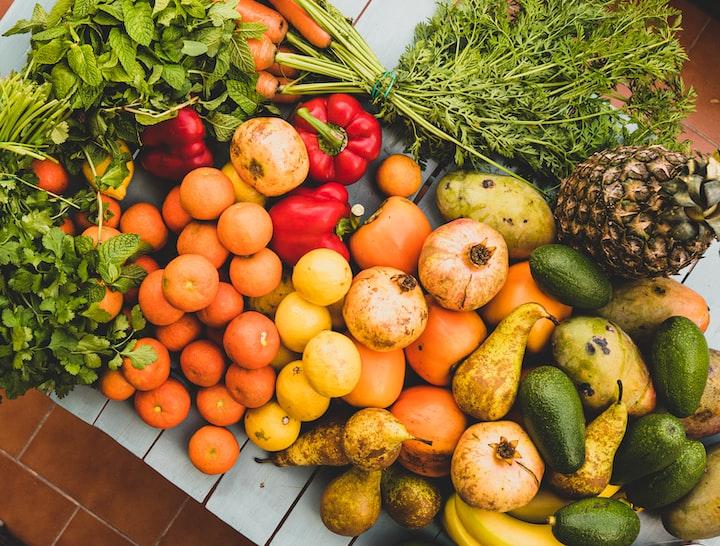There are various fruits that have anti-inflammatory properties. These include pomegranates, cherries, blueberries, and oranges. These fruits contain compounds that can help to reduce inflammation in the body.
Berries. From strawberries and blackberries to cranberries and blueberries, these gem like fruits are particularly potent in antioxidant and anti-inflammatory activity
Berry consumption has been linked with a reduced risk of several chronic diseases, including heart disease, cancer, and diabetes. This may be at least partially due to the anti-inflammatory effects of berries. Inflammation is a key driver of these chronic diseases, and anything that can help reduce inflammation may also help reduce the risk of these conditions.
Berries are also a good source of fiber, which is another nutrient with anti-inflammatory effects. Fiber helps keep our gut healthy by promoting regular bowel movements and preventing constipation. A healthy gut is important for overall health since it houses our immune system and plays a role in inflammatory responses throughout the body.
So if you’re looking for foods that can help fight inflammation, don’t forget about berries! Whether you enjoy them fresh, frozen, or dried, adding more berries to your diet is a delicious way to get some powerful anti-inflammatory nutrients into your body.
Apples
While apples are not specifically marketed as an anti-inflammatory fruit, they do contain properties that make them beneficial for those looking to reduce inflammation. Apples are a good source of quercetin, a type of flavonoid known for its anti-inflammatory and antioxidant effects. Quercetin has been shown to inhibit the release of histamine, which can trigger inflammation, and may also help to reduce the production of pro-inflammatory cytokines. In addition, apples contain pectin, a soluble fiber that can help to reduce inflammation by binding to and removing toxins from the gut.
Stone fruits
There is some evidence to suggest that stone fruits may have anti-inflammatory properties. A study published in the Journal of Ethnopharmacology found that an extract of peach leaves was able to inhibit the production of inflammatory cytokines in human cells. Another study found that an extract of apricot seeds had anti-inflammatory activity in rats.
It’s not clear exactly how stone fruits might exert their anti-inflammatory effects, but it is thought that it may be due to their content of phenolic compounds. These compounds are known to have antioxidant and anti-inflammatory activities.
If you’re looking for foods that may help to reduce inflammation, adding some stone fruits to your diet might be a good idea. Of course, as with any food, it’s important to eat them in moderation as part of a healthy diet overall.
Citrus
The health benefits of citrus fruits have been known for centuries. The ancient Greeks and Romans used them to treat a wide variety of ailments. Today, science has confirmed what folk medicine has long suspected – that citrus fruits are indeed good for you.
One of the most important nutrients in citrus fruits is vitamin C. This vital nutrient is a powerful antioxidant that helps protect your body against inflammation. Inflammation is a natural response to injury or infection, but when it becomes chronic, it can lead to serious health problems such as heart disease, stroke, and cancer.
Studies have shown that people who eat more foods rich in vitamin C have a lower risk of these chronic diseases. Citrus fruits are an excellent source of this nutrient – just one orange provides over 100% of the recommended daily intake! So make sure to include plenty of oranges, lemons, grapefruits and other citrus fruit in your diet to enjoy their full health benefits.
Pomegranates
The pomegranate is a member of the berry family and is native to Asia. The fruit is about the size of an orange with a tough, leathery skin that contains many small seeds. The flesh of the fruit is pink or red and is very juicy. Pomegranates can be eaten fresh or juiced, and their juice is often used as a natural sweetener in recipes.
Pomegranates are rich in antioxidants, which are substances that protect cells from damage caused by free radicals. Free radicals are unstable molecules that can cause cell damage and lead to chronic diseases such as cancer. Antioxidants neutralize free radicals and help prevent cell damage.
Punicic acid is one of the main antioxidants found in pomegranates and has been shown to have anti-inflammatory effects. In one study, punic ic acid was found to inhibit the production of pro-inflammatory cytokines . Cytokines are signaling molecules that play an important role in inflammation. By inhibiting their production, punic ic acid can help reduce inflammation throughout the body.
Image: Kwangmoozaa Getty Images
The term “anti-inflammatory” is used to describe foods or herbs that help to reduce inflammation in the body. Inflammation is a response by the body’s immune system to protect against infection or injury. However, chronic inflammation can lead to a variety of health problems, such as heart disease, arthritis, and cancer.
There are many different types of fruits that have anti-inflammatory properties. Some of the most popular include:
Apples – Apples contain quercetin, a powerful antioxidant that has been shown to reduce inflammation. Additionally, apples are a good source of fiber, which can also help to reduce inflammation.
Blueberries – Blueberries are rich in anthocyanins, which are powerful antioxidants that have been shown to decrease inflammation. Additionally, blueberries contain ellagic acid, another compound with anti-inflammatory properties.
Cherries – Cherries contain several compounds with anti-inflammatory effects including anthocyanins and quercetin. Additionally, cherries are a good source of fiber and vitamin C (another nutrient with anti-inflammatory effects).
Pineapple – Pineapple contains bromelain, an enzyme that has been shown to reduce inflammation and pain associated with arthritis and other inflammatory conditions. In addition to its anti-inflammatory effects, pineapple is also a good source of vitamins C and B1 (thiamin), both of which have additional health benefits..
